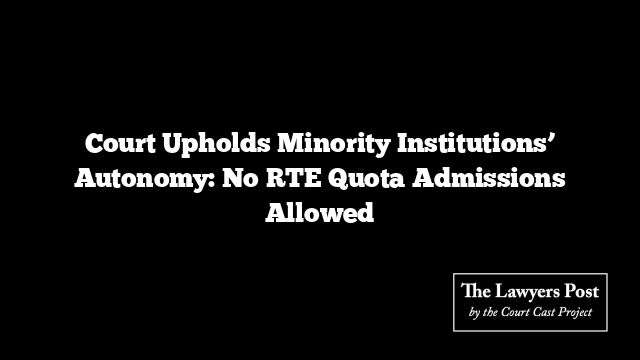In a significant ruling, the Aurangabad bench of the Bombay High Court has reaffirmed the autonomy of minority educational institutions by barring them from admitting students under the Right of Children to Free and Compulsory Education Act, 2009 (RTE Act) quota, even on a voluntary basis.
The case involved two minority-run English-medium schools in Ahmednagar— Izaak English Medium School and Anand Medical and Education Foundation—which challenged a government directive linked to a 2013 circular. This circular excluded minority institutions from the RTE Act’s mandate to admit 25% of students from economically and socially disadvantaged backgrounds. The schools sought the right to voluntarily admit students under this quota while also claiming reimbursement for previous years’ admissions.
However, the Court ruled against them, highlighting that allowing such admissions would infringe upon the constitutional protections that exempt minority institutions from the RTE Act’s provisions. The Bench, comprising Justices Mangesh S Patil and Shailesh P Brahme, noted that even if minority institutions were willing to admit students under the RTE quota, doing so would effectively apply the RTE Act to them, which the Supreme Court has deemed “ultra vires” under Article 30(1) of the Constitution.
The ruling pointed to Section 1(5) of the RTE Act, which explicitly exempts minority institutions, and reinforced the Supreme Court’s earlier decision in the Pramati Educational and Cultural Trust case that extending the RTE Act to minority schools violates their constitutional rights.
While the Court dismissed the schools’ challenges to the RTE Act and its related rules, it did order the government to review and reimburse Izaak English Medium School for students admitted under the RTE quota between 2017-18 and 2019-20.
This decision underscores the delicate balance between the right to education and the rights of minority institutions to govern themselves independently, as guaranteed by the Constitution.





